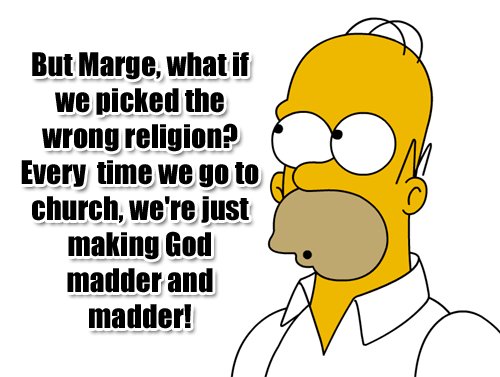I initially thought Pascal's wager was brilliant. It made perfect sense to me. You should obviously see that in the risk/reward analysis, it is way better to believe in Christianity. However, after some years, Pascal's Wager left me with a very bad taste in my mouth. As I thought about it more and as I listened to atheists speak more (rather than just listening to my Christian community), I recognized several problems I had with Pascal's Wager, at least as most Christians were using it.
1) It emphasized intellectual assent without consideration of Lordship theology and assent of actions.
2) It didn't narrow one's choice down to Christianity, as there are other religions which have eternal judgment as a possibility from which one would want to escape.
3) It emphasized potential risk while dismissing (or not accounting for) probability. For example, a large bird could drop a heavy stone on my head from hundreds of feet and kill me, yet I don't, and won't, walk around with a helmet knowing there is a huge consequence should the event occur. The probability of its occurrence is practically zero. Falling out of bed is another example, as it kills about 450 people in the U.S. each year and injures close to 2 million, yet most of us take minimal precautions.




 RSS Feed
RSS Feed